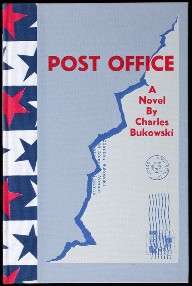Old Post Office
Old Post Office, or Former Post Office, may refer to:
United Kingdom
United States
(ordered by state and city)

Old Post Office (Buffalo, New York)
The Old Post Office, also known as U.S. Post Office, is a historic post office building located at 121 Ellicott Street in Buffalo in Erie County, New York. It was the tallest building in the city from 1901 to 1912. It was designed by the Office of the Supervising Architect during the tenure of Jeremiah O'Rourke when construction started in 1897. The $1,500,000 building opened in 1901 during the tenure of James Knox Taylor and operated as Buffalo's central post office until 1963. The highly ornamented Gothic Revival style four story building features a 244 foot tower over the central entrance. The main feature of the interior is a roofed courtyard. It was subsequently occupied by federal offices. Since 1981, it has been home to the city campus of Erie Community College.
Its tower is 74.4 meters tall.
It was listed on the National Register of Historic Places in 1972 as "U.S. Post Office".
Gallery

View from Stadium, January 2014
View from Stadium, January 2014

Old Post Office (Oneonta, New York)
Old Post Office is a historic post office building located at Oneonta in Otsego County, New York, United States. It was built in 1915, and is one of a number of post offices in New York State designed by the Office of the Supervising Architect of the Treasury Department, Oscar Wenderoth. The original portion of the building is nearly square, seven bays on each side. It is built of Indiana limestone, with Concord granite trim in the Classical Revival style. It features a giant portico supported by six massive Corinthian order columns. In 1980, the building housed city offices moved from the Old City Hall.
It was listed on the National Register of Historic Places in 1988. It is located within the Oneonta Downtown Historic District established in 2003.
References

Post office
A post office is a customer service facility forming part of a national postal system. Post offices offer mail-related services such as acceptance of letters and parcels; provision of post office boxes; and sale of postage stamps, packaging, and stationery. In addition, many post offices offer additional services: providing and accepting government forms (such as passport applications), processing government services and fees (such as road tax), and banking services (such as savings accounts and money orders). The chief administrator of a post office is a postmaster.
Prior to the advent of postal and ZIP codes, postal systems would route items to a specific post office for receipt or delivery. In 19th-century America, this often led to smaller communities being renamed after their post offices, particularly after the Post Office Department ceased to permit duplicate station names within a state.
Name
The term "post office" or "post-office" has been in use since the 1650s, shortly after the legalisation of private mail service in England in 1635. In early Modern England, post riders – mounted couriers – were placed ("posted") every few hours along post roads at "posting houses" or "post houses" between major cities ("post towns"). These stables or inns permitted important correspondence to travel without delay. In early America, post offices were also known as "stations". This term and "post house" fell from use as horse and coach service was replaced by railways, aircraft, and automobiles.

Post Office (novel)
Post Office is the first novel written by Charles Bukowski, published in 1971 when he was 50 years old.
Plot
Down-and-out barfly Henry Chinaski becomes a substitute mail carrier; he quits for a while and lives on his winnings at the track, then becomes a mail clerk. Chinaski drifts from place to place, surviving through booze and women, with his biting sense of humor and a cynical view of the world.
Writing and publication
An autobiographical account of Bukowski's years working as a carrier and sorter for the United States Postal Service, the novel is "dedicated to nobody". Post Office introduces Bukowski's autobiographical anti-hero, Henry Chinaski. It covers the period of Bukowski's life from about 1952 to his resignation from the United States Postal Service three years later, to his return in 1958 and then to his final resignation in 1969. During this time, Chinaski/Bukowski worked as a mail carrier for a number of years. After a brief hiatus, in which he supported himself by gambling at horse races, he returned to the post office to work as a sorter.

Post Office Ltd
Post Office Ltd (Welsh: Swyddfa’r Post Cyf.; Scottish Gaelic: Oifis a' Phuist) is a retail post office company in the United Kingdom that provides a wide range of products including postage stamps and banking to the public through its nationwide network of post office branches. The company is owned by the British Government's Department for Business, Innovation and Skills, through Postal Services Holding Company Limited.
History
Post Office branches, along with the Royal Mail delivery service, were formerly part of the General Post Office and later the Post Office corporation. Post Office Counters Ltd was created as a wholly owned subsidiary of the Post Office corporation in 1986. After the Post Office corporation was renamed Royal Mail Group in 2001, Post Office Counters Ltd became Post Office Ltd.
Post Office Ltd has in recent years announced losses; a reported £102 million in 2006. This has raised many concerns in the media regarding Post Office Ltd's ability as a company to operate efficiently. Plans to cut the £150m-a-year subsidy for rural post offices led to the announcement that 2,500 local post offices were to be closed. This announcement resulted in a backlash from local communities that relied on the service.
Podcasts:

